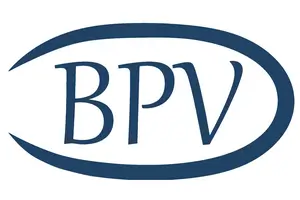What is ISO9001 and why is it important for pharmaceutical service providers to be certified?
ISO 9001 is a globally recognised standard developed by the International Organisation for Standardisation (ISO) that outlines the requirements for a Quality Management System (QMS).
A Quality Management System (QMS) is a structured framework of guidelines that helps organisations ensure consistent delivery of products and services that meet customer expectations and comply with regulatory requirements. Although it is not mandatory, ISO 9001 provides a systematic approach to managing quality and fostering a culture of continuous improvement within an organisation (ISO, 2015). This article hopes to explain the key principles of ISO9001 generally, before focusing on its importance in the pharmaceutical sector.
Key Principles of ISO 9001:
Process Approach: ISO 9001 encourages organisations to view their activities as interconnected processes that collectively contribute to achieving objectives. By identifying, mapping, and optimising these processes, organisations can enhance efficiency, reduce waste, and improve overall performance.
-
- Risk-Based Thinking: ISO 9001 introduces the concept of risk-based thinking, where organisations identify potential risks, assess their impacts, and implement strategies to mitigate or manage these risks. This proactive approach helps prevent problems and ensures a more resilient QMS.
- PDCA Cycle (Plan, Do, Check, Act): Promotes a strategic way of thinking when making decisions. Each decision should be planned to consider the roles and responsibilities of team members, the risks and benefits of a decision, consideration of resources and communication of the decision. The Do phase involves carrying out the decided activity in line with the plan. Following this, there should be a Checking phase in which the final outcome should be checked for issues and to see if it meets the initial requirements set out in the plan. The Act phase involves taking actions to correct issues found in the checking phase.
- Customer Focus: At the heart of ISO 9001 lies a customer-centric approach. Organisations are encouraged to understand and meet customer needs, preferences, and expectations. By aligning their processes with customer requirements, organisations can enhance customer satisfaction and build lasting relationships.
- Leadership: Effective leadership is crucial in driving a successful QMS. Leaders establish a clear quality policy and objectives, provide necessary resources, and create an environment where employees are empowered to contribute to quality improvements.
- Evidence-Based Decision Making: Decisions should be based on data, analysis, and factual information. ISO 9001 encourages organisations to gather and evaluate relevant data to make informed decisions that drive improvements in processes and outcomes.
- Relationship Management: Building and maintaining strong relationships with suppliers, partners, and stakeholders is essential for effective quality management. ISO 9001 emphasises collaboration and communication to ensure that all parties work together to achieve common quality goals.
- Continual Improvement: ISO 9001 places a strong emphasis on continual improvement. Organisations are expected to continually monitor and evaluate their QMS, identify areas for enhancement, and implement changes that lead to higher levels of quality, efficiency, and customer satisfaction (ISO, 2015).
Why is it important for pharmaceutical service providers such as validation companies to adopt ISO9001?
It is a big decision when selecting the correct service provider, therefore ISO9001 certification provides reassurance that a supplier knows its risks and has plans in place to mitigate them, thus reducing the impact on the purchasing party. For example, for a packaging supplier to the pharmaceutical industry, if there were a critical material key to production, the pharmaceutical company would want to know that the supplier understands the risks and has organised a consistent conforming supply chain to service the marketplace. ISO certification and auditing ensure supplier or service provider has risk-based thinking (Mack EL, 2017).
In Conclusion:
ISO 9001 is not just a set of guidelines; it’s a philosophy that shapes how organisations approach quality and improvement. By adhering to these core principles, organisations can establish a strong foundation for effective quality management, enhance customer satisfaction, and foster a culture of excellence that drives their long-term success. In a competitive pharmaceutical marketplace, ISO9001 certification of service providers can provide reassurance to pharmaceutical manufacturers that their suppliers hold the same high-quality standards.
At BPV, we are proud of our ISO9001 certification as it shows our ongoing commitment to providing a quality validation service to our customers. In addition, it helps set us apart from the rest! If you are interested to learn more, please visit our website at www.bpvltd.co.uk or contact us at [email protected].
References:
1.ISO (2015). Quality management principles. [online] International Organisation for Standardization. Available at: https://www.iso.org/files/live/sites/isoorg/files/store/en/PUB100080.pdf.
2.Mack, E.L. (2017). 5 Things Pharma Managers Need to Know About ISO 9001:2015 – Pharmaceutical Processing World. [online] Pharmaceutical Processing World. Available at: https://www.pharmaceuticalprocessingworld.com/5-things-pharma-managers-need-to-know-about-iso-90012015/.

